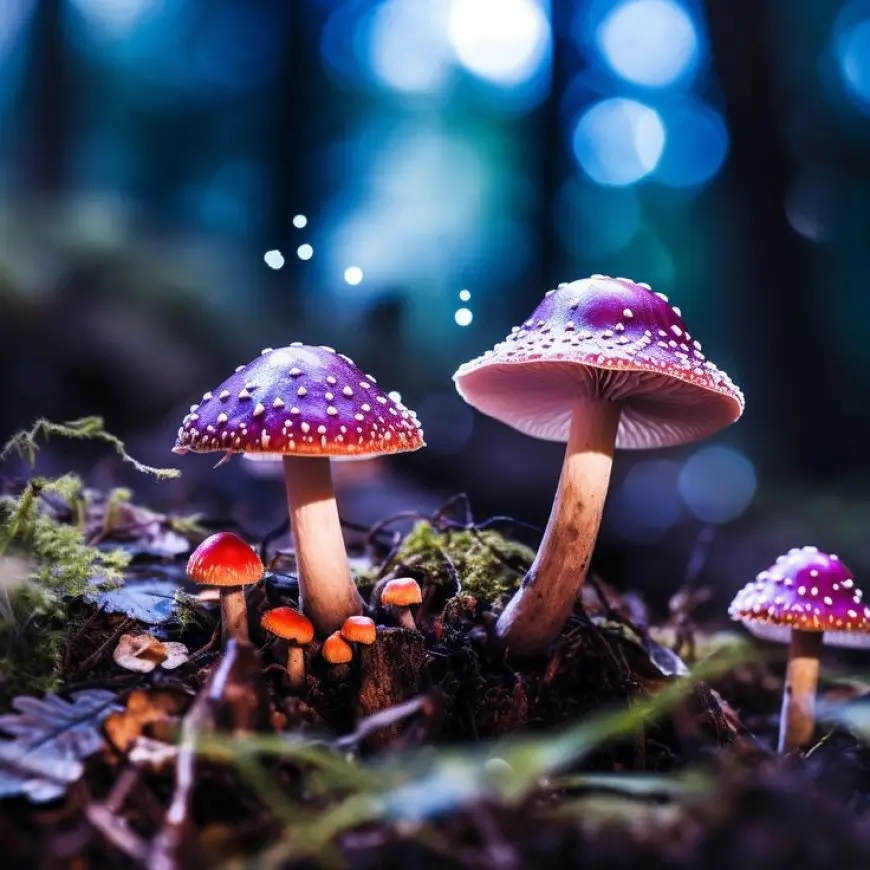The Fascinating World of Fungi and Mushrooms
The Fascinating World of Fungi and Mushrooms

Fungi, including mushrooms, are an extraordinary group of organisms that play vital roles in ecosystems and have been an essential part of life on Earth for millions of years. While they may appear to be simple organisms, they are incredibly diverse, with thousands of species that vary in size, shape, color, and function. Understanding the world of fungi is crucial not only for appreciating nature but also for recognizing their importance in everything from medicine to agriculture and environmental health.
What Are Fungi?
Fungi are a separate group of organisms that are neither plants nor animals. They belong to the kingdom Fungi and are distinct in how they obtain nutrients. Unlike plants, which produce their food through photosynthesis, fungi are heterotrophic, meaning they rely on organic matter for nutrition. They do this by decomposing dead material, breaking it down into nutrients that are recycled back into the ecosystem. This makes fungi essential for maintaining healthy soil and ecosystems.
Fungi can be single-celled, like yeast, or multicellular, like molds and mushrooms. The multicellular fungi form networks of filaments called hyphae, which spread out and absorb nutrients from the surrounding environment. These networks are often so vast that they can be considered one of the largest living organisms on Earth.
The Role of Fungi in Ecosystems
Fungi are crucial players in the decomposition process. They break down dead plant and animal matter, returning vital nutrients to the soil that plants use to grow. This decomposition helps maintain the balance of ecosystems, allowing new life to flourish.
In addition to their role in decomposition, fungi form symbiotic relationships with other organisms. One of the most well-known examples is mycorrhizal fungi, which form partnerships with the roots of plants. These fungi provide plants with essential nutrients, such as phosphorus, while the plants supply the fungi with sugars produced through photosynthesis. This mutualistic relationship is crucial for the health of many ecosystems.
Fungi also engage in relationships with certain insects, like ants and termites, in which they help break down plant material. Some fungi can even parasitize plants, animals, and other fungi, further contributing to the complex web of life.
The Diversity of Mushrooms
Mushrooms, the fruiting bodies of certain fungi, come in a remarkable variety of shapes, sizes, and colors. Some mushrooms are edible and highly prized for their flavor and nutritional value, such as the common button mushroom, shiitake, and porcini. Other species are toxic or even deadly, such as the infamous Amanita muscaria, often recognized by its bright red cap and white spots. The diversity of mushrooms is astounding, with new species still being discovered regularly in forests, fields, and even urban environments.
Mushrooms can range from tiny, delicate species that appear only after a rainstorm to large, robust ones that grow to the size of dinner plates. Some species are bioluminescent, glowing in the dark due to a chemical reaction that is still not fully understood. The world of mushrooms is not just fascinating because of their diversity in form, but also because of their wide range of ecological roles.
Medicinal Uses of Fungi
Fungi have been used in traditional medicine for centuries, and modern research has confirmed the therapeutic potential of certain species. For example, the medicinal mushroom Ganoderma lucidum, known as reishi, has been used in East Asia for thousands of years to boost immunity, improve health, and even extend life.
Other fungi, such as Penicillium, have had a profound impact on medicine. Penicillin, the first antibiotic, is derived from a mold in the Penicillium genus. The discovery of this fungus revolutionized the treatment of bacterial infections and saved millions of lives.
Fungi also have potential in cancer research, with some species showing promise in reducing tumor growth or boosting the effects of chemotherapy. In addition, fungi are being explored for their ability to treat a wide range of other diseases, such as diabetes, heart disease, and mental health disorders.
The Use of Fungi in Biotechnology
In biotechnology, fungi are used for a variety of applications, from food production to waste management. Yeast, a type of fungus, is essential in baking and brewing, where it ferments sugars to produce carbon dioxide and alcohol. The fermentation process is not only crucial for making bread, beer, and wine but is also used in the production of biofuels and other chemicals.
Fungi also play a role in bioremediation, the process of using living organisms to clean up pollutants. Certain fungi can break down toxic substances, such as petroleum products and heavy metals, into less harmful compounds. This ability makes fungi important tools in environmental conservation, helping to restore contaminated environments.
Fungi and the Future of Sustainability
As the world faces increasing environmental challenges, fungi may offer solutions for sustainability. Their ability to decompose organic matter and recycle nutrients is critical for the health of ecosystems. Additionally, fungi are being researched for their potential to produce sustainable materials, such as biodegradable plastics made from fungal mycelium.
Fungi may also play a role in the development of sustainable food sources. Edible fungi like mushrooms are high in protein and can be grown with minimal resources. As the demand for plant-based proteins increases, mushrooms and other fungi may become an important food source in the future.
The Mystery and Beauty of Fungi
The world of fungi is full of mysteries waiting to be unraveled. These organisms, often overlooked, have immense ecological importance and offer countless benefits to humans. From the smallest yeast cells to the largest mushrooms, fungi are integral to the health of our planet. Their diverse roles in ecosystems, food production, medicine, and biotechnology make them truly fascinating. As we continue to explore the potential of fungi, we uncover new possibilities for innovation, sustainability, and understanding the natural world.







